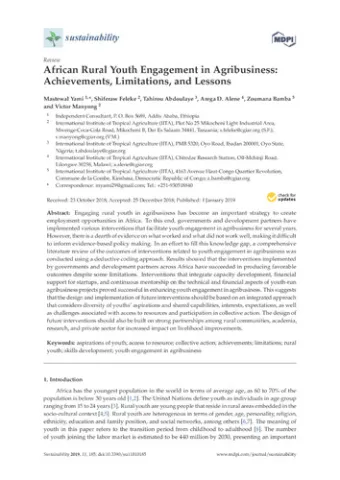African rural youth engagement in agribusiness: achievements, limitations, and lessons

Abstract
Engaging rural youth in agribusiness has become an important strategy to create employment opportunities in Africa. To this end, governments and development partners have implemented various interventions that facilitate youth engagement in agribusiness for several years. However, there is a dearth of evidence on what worked and what did not work well, making it difficult to inform evidence-based policy making. In an effort to fill this knowledge gap, a comprehensive literature review of the outcomes of interventions related to youth engagement in agribusiness was conducted using a deductive coding approach. Results showed that the interventions implemented by governments and development partners across Africa have succeeded in producing favorable outcomes despite some limitations. Interventions that integrate capacity development, financial support for startups, and continuous mentorship on the technical and financial aspects of youth-run agribusiness projects proved successful in enhancing youth engagement in agribusiness. This suggests that the design and implementation of future interventions should be based on an integrated approach that considers diversity of youths’ aspirations and shared capabilities, interests, expectations, as well as challenges associated with access to resources and participation in collective action. The design of future interventions should also be built on strong partnerships among rural communities, academia, research, and private sector for increased impact on livelihood improvements.
